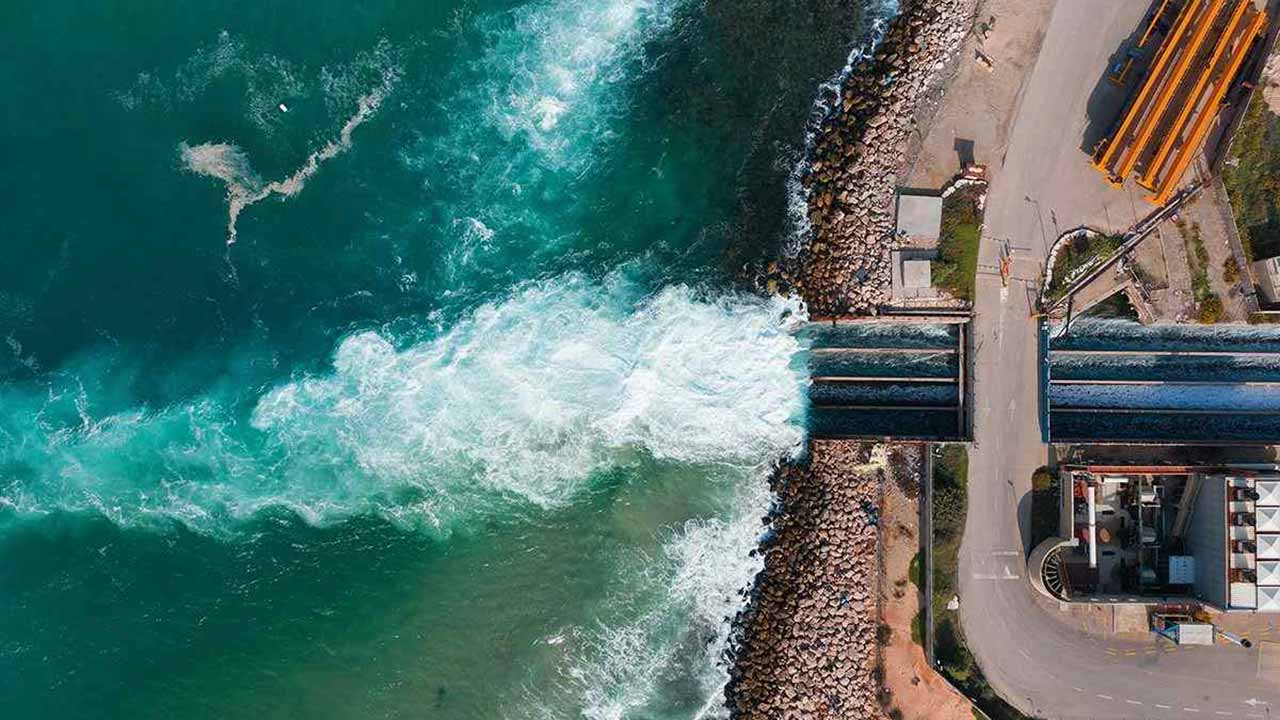Zero and Almargem also criticised the lack of analysis of the costs of desalinated water production on the tariffs charged to end consumers.
The amount of water produced by the desalination plant planned for the Algarve is almost the same as that lost in the supply systems and does not guarantee the resilience of the region’s public supply, the environmental association Zero warned on Friday.
Zero and Almargem – the association for the defence of the Algarve’s cultural and environmental heritage – took a public stance on the project and expressed doubts that the new desalination plant would make an “effective contribution” to “guaranteeing the resilience of public supply” in the region.
The Algarve seawater desalination plant (EDAMA) is due to be built in Albufeira, with funding from the Recovery and Resilience Programme (PRR – the EU bazooka funds for post-pandemic recovery). Public consultation on the project’s Environmental Impact Assessment (EIA) ended on December 19.
In a statement, the associations considered that the water losses in the Algarve’s supply systems are equivalent to what will be produced by EDAMA and expressed “great reservations about the project’s real contribution” to ensuring, in addition to the resilience of public supply, “water availability for current and future consumption”.
“For these two associations, the documents under public consultation do not adequately justify the need for the project,” said Zero and Almargem in their public position, to which the Lusa news agency had access.
The documents under consideration in the EIA consultation “leave out” of the analysis the “current and future water needs for public supply” and the “characterisation of current sources, competing uses and foreseeable scenarios, taking into account the hierarchy of uses and the project’s contribution to meeting these needs”, they warned.

It also fails to establish the “impacts that the increase in water supply for the urban sector will have on other uses”, such as irrigated agriculture, as well as those resulting from “the increase in the price of water, both for consumers and for the entities that manage the supply services operating in the region”, they added.
Zero and Almargem called for a more in-depth assessment of the project, arguing that there are 19 entities in the Algarve responsible for water supply – such as local councils and municipal companies or service concessionaires – with “real losses in the distribution networks” of more than 13 million cubic metres (13 cubic hectometres), while the planned supply of desalinated water will be “on average 12.5 cubic hectometres per year”.
“This will jeopardise the fulfilment of the objective of strengthening the water resilience of the Algarve’s supply system and guaranteeing the current and future water needs of the public supply if there is no effective effort to increase the efficiency of the supply networks,” they argued.
The associations also argued that, in addition to the desalination plant, the Algarve Regional Water Efficiency Plan (PREHA) provides for around €44 million in investment to rehabilitate 125 kilometres of low water supply network, “contributing to a reduction of two cubic hectometres in the demand for water in natural systems”, but this only represents “just over 15% of the system’s current real losses”.
They also criticised the lack of analysis of the costs that the production of desalinated water will have on the tariffs charged to end consumers and “the economic and financial balance of the entities that manage the supply services”, which could be “10 times higher than that of traditionally produced water” and “significantly increase tariffs”.
Zero and Almargem also expressed reservations about mitigating climate change because the photovoltaic solar energy system planned to reduce the impact of the desalination plant “only covers 14% of the energy needed, with the rest coming from the public grid”, with a consequent increase in greenhouse gases.
Lusa


























